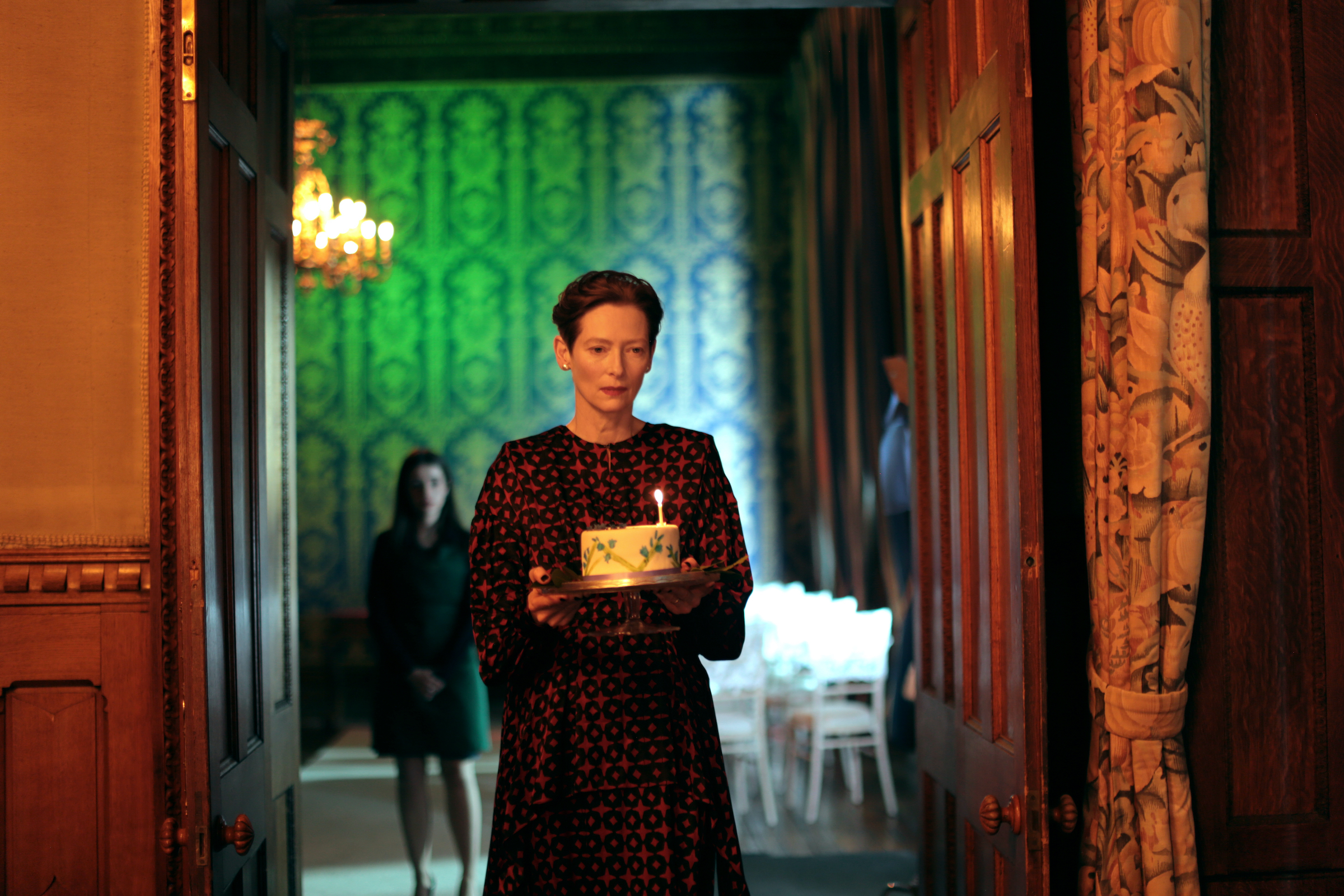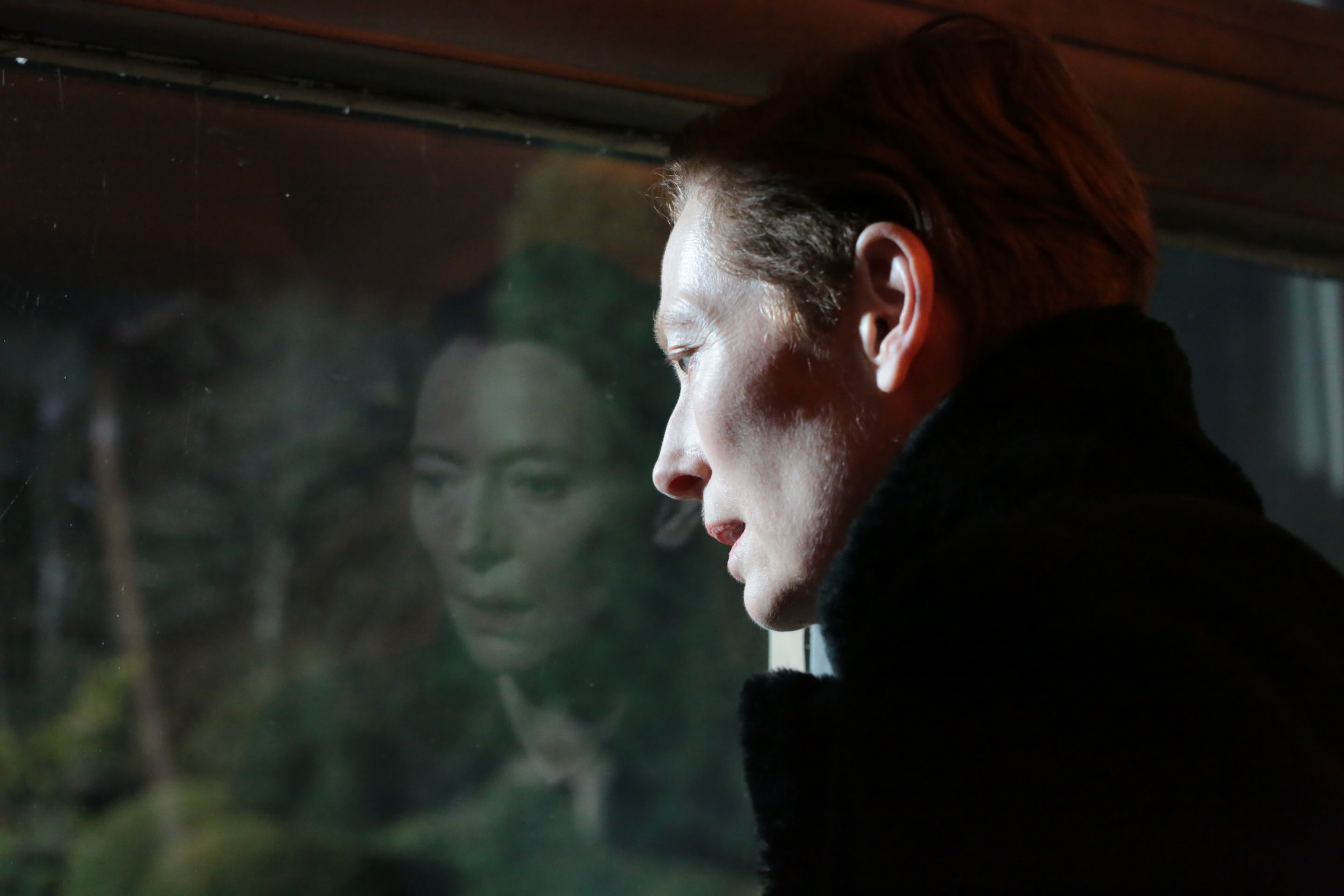
If you’ve seen or read a ghost story anytime in the past 100 years, you’ll probably guess the secret of The Eternal Daughter—playing in competition at the 79th Venice Film Festival—in the first few minutes. But knowing a secret isn’t the same as parsing a mystery. And that’s what writer-director Joanna Hogg is doing here: she seeks to unravel the ways in which we relate to our parents as they age, how we try to listen to them and understand their experiences. Maybe we can transplant their memories into our own lives and thus carry their spirit into the future. Or maybe we need to recognize that only our lives are ours to live—and our parents’ experiences, while they may inform who we are, exist on a plane out of our reach.
That’s just one of several possible interpretations of this gorgeous and enigmatic movie, which is a sort of coda to Hogg’s superb semi-autobiographical diptych The Souvenir (2019) and The Souvenir: Part II (2021), in which she traced her own experience as a nascent filmmaker. In those films, Hogg’s stand-in is Julie, played by Honor Swinton Byrne; Julie’s mother is played by Swinton Byrne’s mother in real life, Tilda Swinton. In The Eternal Daughter, Swinton plays a dual role: that of Julie, now an accomplished filmmaker, and of her mother, the aging Rosalind. To celebrate Rosalind’s birthday, Julie has booked a celebratory weekend at an inn in Wales, an old country manor where Rosalind had spent time as a child during the Second World War. Julie has arranged the weekend as a seemingly unselfish gesture, so that her mother might have a chance to recall some pleasant memories. But she’s a filmmaker at heart, and consciously or otherwise, she wonders if her mother’s recollections might be of use in her work.
When Rosalind and Julie arrive, they appear to be the only guests in this stately but gloomy place, even though the studiously unwelcoming front-desk manager (Carly-Sophia Davies) has told them that the room Julie had booked earlier is unavailable. With unerring politeness, Julie works out the problem and gets Rosalind settled—her speckled spaniel Louis has come along on the trip, and he stretches alongside her on the bed, half watchdog, half lazy pasha. (Louis is played by Swinton’s own dog, also named Louis.)

Read more: The 52 Most Anticipated Movies of Fall 2022
Julie hopes to get some work done while she’s there, as Rosalind sifts through her memories of the place. At dinner in the evenings—they’re the only people in the dining room, with the surly desk clerk serving as waiter—Rosalind recalls being a little girl happily jumping with her cousins from sofa to sofa in the drawing room. But other, more painful recollections surface too, and while Julie winces as she hears of her mother’s suffering, she has also surreptitiously hit the “record” button on her phone. Is she trying to give something to her mother—a pleasant long weekend away, a chance to reminisce—or is she hoping to take something for herself?
All of this takes place in a sprawling, unwelcoming house that creaks and groans in the night, making its centuries-old aches and pains known. In the middle of the night a door opens like a whisper, and Louis jumps off the bed, away from his mistress and into the night, as if summoned by a specter. Julie searches the misty grounds, frantically. Though it had seemed earlier that the churlish desk clerk was the hotel’s only employee, Julie encounters another worker there, a kindly presence who joins in the search for Louis. (He’s played by Joseph Mydell, who radiates generosity and warmth.) Meanwhile, Julie worries—and worries—about her mother, trying to take the best care of her, trying to give her happiness, while feeling she’s falling far short of the mark.
Read more reviews by Stephanie Zacharek
Hogg is having some fun here, riffing on classic horror conventions. Exterior shots of this sad old inn, half-bathed in moonlight and bearing witness to the notes of an eerie flute soundtrack, recall cerebral ghosty tales like Robert Wise’s Shirley Jackson adaptation The Haunting. But even if ghost stories in general are fantastic vehicles to explore feelings of grief and regret, Hogg makes this one her own, speaking through her double Tildas. Tilda as Julie, with her chic asymmetrical haircut, is both efficient and ever-anxious, eager to do the right thing even when she has no idea what that is. Tilda as Rosalind, with her papery skin and moon-silver coif, is like a celestial body who has somehow, at one point, managed to give birth. She comes to dinner in tasteful printed dresses; a boxy leather handbag of superb quality sits on the floor by her bed.
Their upper-class-mother-daughter conversations are polite and stiff, perhaps a bit strange to American ears; both skitter away from intimate revelations and meticulously avoid expressing anything that might be called emotion. But warmth and tenderness flutter beneath their words like benevolent butterflies. With this dreamy, elegiac ghost story, Hogg is once again revealing something of herself, ardent and intimate. To Julie, Rosalind is both Delphic and the source of great and enduring love. The Eternal Daughter isn’t just a ghost story but a song, sung by a daughter to her mother across a small table at dinner, or across the space that remains when the people we love have left us.
More Must-Reads From TIME
- The 100 Most Influential People of 2024
- The Revolution of Yulia Navalnaya
- 6 Compliments That Land Every Time
- What's the Deal With the Bitcoin Halving?
- If You're Dating Right Now , You're Brave: Column
- The AI That Could Heal a Divided Internet
- Fallout Is a Brilliant Model for the Future of Video Game Adaptations
- Want Weekly Recs on What to Watch, Read, and More? Sign Up for Worth Your Time
Contact us at letters@time.com